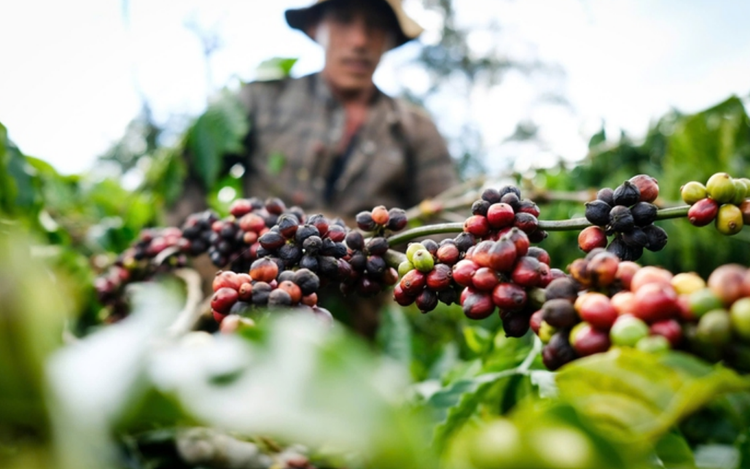
Many Vietnamese firms are capitalizing on the surging global demand for goods amid the Middle East conflict to beef up exports. Photo: Tan Luc / Tuoi Tre
Nguyen Dinh Tung, vice president of the Vietnam Fruits and Vegetables Association and general director of Vina T&T Group, said that while the company exports only modest volumes to the Middle East, mainly to the UAE, Oman, and Saudi Arabia, these markets are not directly affected by the conflict.
As a result, its export activities have remained stable.
He also noted that shipments of fruit to the United States and the European Union are currently unaffected.
Meanwhile, Nguyen Tuan Viet, director of VIETGO Export Promotion Company, highlighted the significant impact of rising logistics costs, particularly on vital trade routes such as the Suez Canal and the Strait of Hormuz.
Unlike previous years when freight rates typically rise during the year-end peak season, this year’s increases are expected to arrive earlier due to instability in the region.
Despite these challenges, Viet sees potential for Vietnamese exporters.
As supply chains fracture, demand for essential goods has surged, especially from major importers like India, which plays a key role in Middle Eastern trade.
Following the outbreak of the conflict, Indian partners began seeking Vietnamese suppliers to secure goods.
“Although Vietnam’s export turnover to the Middle East remains modest, free trade agreements, moderate market standards, and shorter transport distances offer strong advantages,” Viet said.
He identified several promising export items including charcoal, cashew nuts, pepper, tea, fresh and dried fruit, seafood, and electronics.
According to a recent VIETGO survey, despite concerns, Vietnamese firms have maintained stable trade activities with no significant disruptions in orders.
Learning from the Russia-Ukraine conflict, during which soaring demand for wood pellets made Vietnam the world’s second-largest exporter of the product, Viet expected Vietnamese exporters to once again capitalize on shifting market needs to boost exports of essential goods and products needed for post-conflict reconstruction.
Call for export diversification
The Ministry of Industry and Trade forecast that consumer goods, fuel, and oil prices would continue rising, exerting multidimensional negative impacts on manufacturing and exports.
Particularly, rising fuel costs are pushing up sea freight and cargo transport rates, especially for routes to Arab states.
Some shipping companies have already increased insurance surcharges for vessels transiting the Persian Gulf and Arabian Sea.
In response, the ministry urged local enterprises to diversify supply sources and seek alternative markets as uncertainties persist in Middle Eastern trade.
It also advised exporters to carefully negotiate logistics, shipping, delivery, and insurance terms in contracts to mitigate risks.
Proactive analysis of geopolitical developments, risk prevention strategies, and close cooperation with state agencies to connect with new markets and secure orders are essential in navigating this turbulent period.


Max: 1500 characters
There are no comments yet. Be the first to comment.